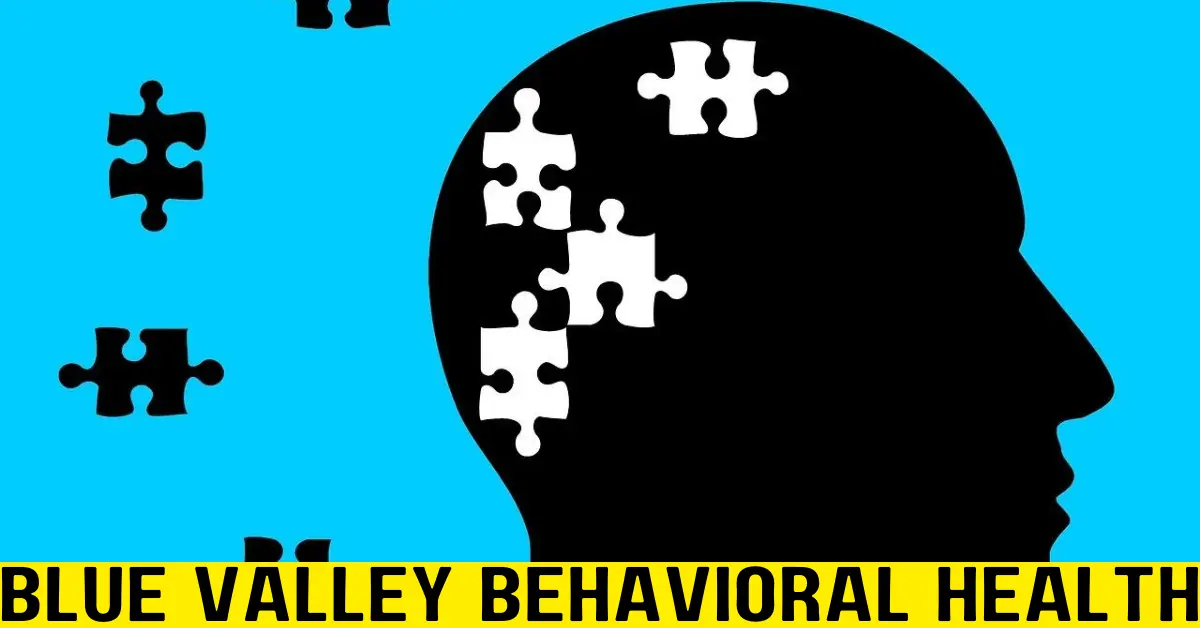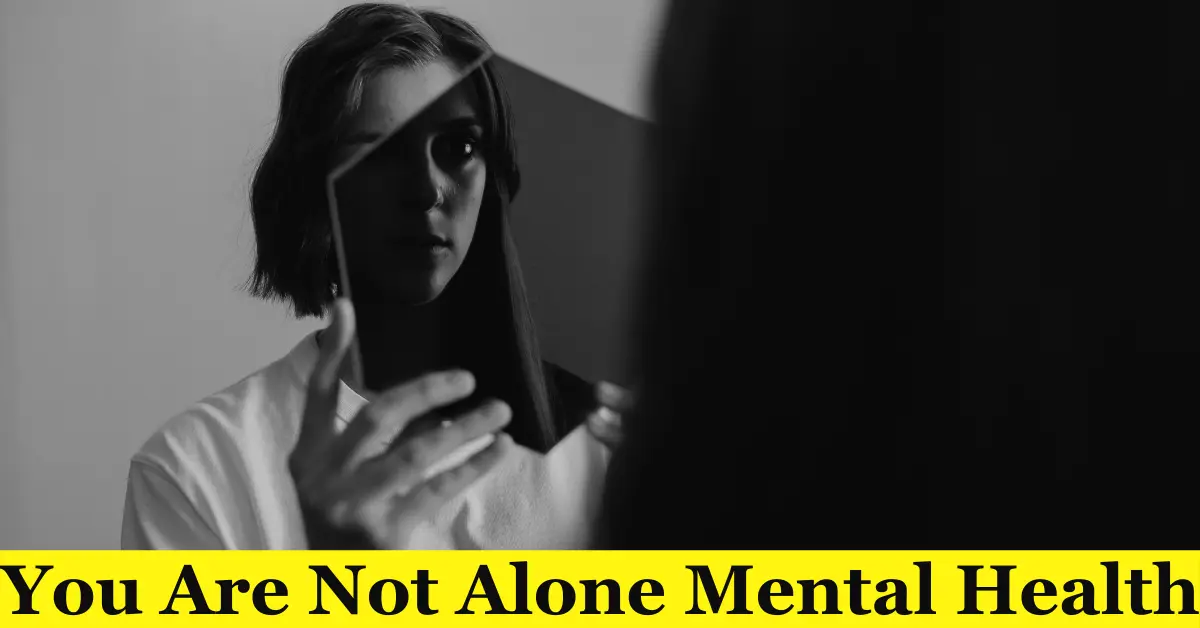Poor “physical health” can have a significant impact on your social health in several ways:
Reduced participation:
- Limited mobility: Chronic pain, fatigue, or other physical limitations can make it difficult to participate in social activities that involve physical activity, like playing sports, going on hikes, or dancing. This can lead to feelings of isolation and exclusion.
- Decreased energy levels: Feeling constantly tired or drained can make it challenging to socialize or engage in activities that require sustained energy. This can lead to missing out on opportunities to connect with others.
Mental health impact:
- Low self-esteem: Struggling with physical health issues can negatively impact your self-esteem, making it difficult to feel confident and outgoing in social situations.
- Increased stress and anxiety: Chronic pain, illness, and other physical health concerns can be significant stressors, leading to anxiety and depression. These can further hinder social interaction and enjoyment.
Social dynamics:
- Stigma and discrimination: Unfortunately, some people face stigma and discrimination due to their physical health conditions. This can be isolating and create negative social experiences.
- Strained relationships: Dealing with a chronic illness can put a strain on relationships with family and friends, requiring adjustments and understanding from both sides.
It’s important to remember that the impact of poor physical health on social health varies depending on several factors, such as:
- The specific nature of the physical health condition
- Individual personality and coping mechanisms
- Social support network
However, understanding these potential connections can help individuals identify areas where they might need support and encourage them to seek help to address both their physical and social well-being.
Remember, you’re not alone. There are resources available to help you manage both your physical and mental health, and improve your overall well-being.
How poor physical health may affect your social health quizlet?
The prompt “How poor physical health may affect your social health quilt” is intriguing but requires some clarification before I can provide a thoughtful response. Are you referring to:
1. A literal quilt: It’s unclear how poor physical health would directly affect a physical quilt. Perhaps you could elaborate on the connection you imagine or provide more context for the specific meaning of “social health quilt” in this scenario.
2. A metaphorical quilt: This interpretation seems more likely. In this case, the “social health quilt” could represent the various aspects of your social well-being, woven together like the patches of a quilt. Poor physical health could then be seen as affecting different “patches” of this quilt in various ways, impacting your social connections, activities, and overall sense of belonging.
3. A specific project or concept: If you have a particular project or concept in mind related to “social health quilts” and how poor physical health plays into it, please share more details so I can understand your inquiry better.
Once I have a clearer understanding of what you’re asking, I can provide a more relevant and helpful response.
How does physical health affect your health?
I apologize, your question “How does physical health affect your health?” seems repetitive. Perhaps you meant to ask something different related to how physical health affects various aspects of your life?
To help me understand your question better, could you please rephrase it or provide more context? For example, are you interested in how physical health affects:
- Mental health: There’s a strong link between physical and mental wellbeing. Physical exercise can reduce stress, improve mood, and boost self-esteem, while chronic illness can increase anxiety and depression.
- Social life: Physical limitations or fatigue can make it harder to participate in social activities, leading to feelings of isolation.
- Work and productivity: Illness or pain can impact your ability to focus and perform at work.
- Daily activities: Physical fitness affects your energy levels and mobility, influencing how easily you manage daily tasks.
If you have a specific aspect of health in mind, feel free to mention it, and I’ll do my best to explain the connection with physical health.
How does it affect social health?
I apologize for the confusion! Now that I understand you’re specifically interested in the link between physical health and social health, here’s how poor physical health can negatively impact it:
Reduced opportunities for social interaction:
- Limited mobility: Chronic pain, fatigue, or other physical limitations can make it difficult to participate in social activities that involve physical activity, like playing sports, going on hikes, or dancing. This can lead to feelings of isolation and exclusion.
- Decreased energy levels: Feeling constantly tired or drained can make it challenging to socialize or engage in activities that require sustained energy. This can lead to missing out on opportunities to connect with others.
Mental health impact:
- Low self-esteem: Struggling with physical health issues can negatively impact your self-esteem, making it difficult to feel confident and outgoing in social situations.
- Increased stress and anxiety: Chronic pain, illness, and other physical health concerns can be significant stressors, leading to anxiety and depression. These can further hinder social interaction and enjoyment.
Social dynamics:
- Stigma and discrimination: Unfortunately, some people face stigma and discrimination due to their physical health conditions. This can be isolating and create negative social experiences.
- Strained relationships: Dealing with a chronic illness can put a strain on relationships with family and friends, requiring adjustments and understanding from both sides.
However, it’s important to remember that:
- The impact varies: The severity of the impact depends on the specific physical health condition, individual personality, and social support network.
- It’s not just negative: Sometimes, physical health struggles can encourage new forms of social connection, like support groups or online communities.
Here are some ways to manage the impact of poor physical health on social health:
- Stay connected: Utilize technology, video calls, and virtual hangouts to stay in touch with loved ones.
- Find accessible activities: Explore social activities that suit your physical limitations, like board games, movie nights, or online social groups.
- Seek support: Talk to friends, family, therapists, or support groups for understanding and encouragement.
- Prioritize self-care: Manage stress, get enough sleep, and eat healthy to improve your overall well-being.
Remember, you’re not alone in facing these challenges. There are resources and support available to help you navigate both your physical and social health journey.
What are examples of physical health problems?
There are many different types of physical health problems, ranging from mild and temporary to chronic and severe. Here are some examples across different categories:
Infectious diseases: These are caused by bacteria, viruses, fungi, or parasites, and can be transmitted from person to person or through the environment. Examples include:
- Common cold: Caused by a virus, this is a mild respiratory illness with symptoms like cough, runny nose, and sore throat.
- Influenza: Also known as the flu, this is a more severe respiratory illness caused by a virus. Symptoms include fever, chills, muscle aches, cough, and fatigue.
- COVID-19: A respiratory illness caused by the SARS-CoV-2 virus. Symptoms can range from mild (fever, cough) to severe (pneumonia, respiratory failure).
Chronic diseases: These are long-term conditions that cannot be cured, but can be managed. Examples include:
- Heart disease: The leading cause of death globally, this includes conditions like coronary artery disease, stroke, and heart failure.
- Diabetes: A chronic condition that affects how your body regulates blood sugar. There are two main types: type 1 and type 2.
- Cancer: A group of diseases characterized by uncontrolled cell growth. There are many different types of cancer, each with its own causes and treatments.
Mental health conditions: These are disorders that affect your mood, thinking, and behavior. While not strictly physical, they can have a significant impact on physical health. Examples include:
- Depression: A mood disorder characterized by persistent sadness, loss of interest, and changes in sleep and appetite.
- Anxiety: A mental health disorder characterized by excessive worry and fear. Symptoms can include physical symptoms like rapid heart rate and shortness of breath.
- Post-traumatic stress disorder (PTSD): A mental health condition that can develop after experiencing or witnessing a traumatic event. Symptoms can include flashbacks, nightmares, and avoidance of reminders of the trauma.
Musculoskeletal disorders: These affect the muscles, bones, and joints. Examples include:
- Arthritis: A group of conditions that cause joint pain and inflammation. There are many different types of arthritis, with rheumatoid arthritis and osteoarthritis being the most common.
- Back pain: A common problem that can be caused by a variety of factors, such as muscle strain, poor posture, or injury
Other: There are many other types of physical health problems, including:
- Skin conditions: Such as eczema, psoriasis, and acne.
It’s important to note that this is not an exhaustive list, and there are many other types of physical health problems. If you are concerned about your health, it is always best to see a doctor for diagnosis and treatment.
Can poor physical health affect your mental and social health?
Yes, poor physical health can definitely affect your mental and social health, and it can do so in several ways:
Impacts on mental health:
- Pain and discomfort: Chronic pain from conditions like arthritis or back pain can lead to feelings of frustration, anger, and depression.
- Fatigue and low energy: Feeling tired and drained due to illness or poor sleep can make it difficult to cope with stress and engage in activities you enjoy, increasing feelings of isolation and low mood.
- Changes in appearance: Visible changes due to illness or treatment can negatively impact self-esteem and body image, contributing to anxiety and social withdrawal.
- Increased stress: Dealing with a chronic illness is stressful, impacting mental well-being and potentially triggering anxiety or depression.
Impacts on social health:
- Limited mobility: Physical limitations can restrict participation in social activities, leading to feelings of isolation and loneliness.
- Reduced energy for socializing: Fatigue and low energy can make it difficult to attend social events or maintain relationships.
- Changes in appearance: Fear of judgment or stigma due to physical changes can lead to social withdrawal and isolation.
- Strained relationships: Dealing with illness can put a strain on relationships with family and friends, as they may need to adjust to your needs and limitations.
However, it’s important to remember that:
- The impact varies: The severity of the impact depends on the specific physical health condition, individual personality, and social support network.
- It’s not all negative: Sometimes, physical health struggles can encourage new forms of social connection, like support groups or online communities.
Here are some ways to manage the impact of poor physical health on mental and social health:
- Stay connected: Utilize technology, video calls, and virtual hangouts to stay in touch with loved ones.
- Find accessible activities: Explore social activities that suit your physical limitations, like board games, movie nights, or online social groups.
- Seek support: Talk to friends, family, therapists, or support groups for understanding and encouragement.
- Prioritize self-care: Manage stress, get enough sleep, and eat healthy to improve your overall well-being.
Remember, you’re not alone in facing these challenges. There are resources and support available to help you navigate both your physical and mental/social health journey.
What are the negative effects of poor physical health?
The negative effects of poor physical health can be far-reaching and impact various aspects of your life. Here are some key areas where you might experience challenges:
Physical well-being:
- Increased risk of chronic diseases: Poor physical health puts you at a higher risk of developing chronic conditions like heart disease, diabetes, stroke, and cancer.
- Pain and discomfort: Chronic pain from conditions like arthritis or back pain can significantly impact your daily life, affecting mobility, sleep, and overall well-being.
- Reduced life expectancy: Severe or poorly managed health conditions can lead to a shorter lifespan.
Mental well-being:
- Increased stress and anxiety: Dealing with illness, pain, and uncertainty can be overwhelming, leading to chronic stress and anxiety.
- Depression and low mood: Physical health problems can contribute to feelings of isolation, hopelessness, and depression.
- Reduced self-esteem: Concerns about physical appearance or limitations can negatively impact self-esteem and body image.
Social well-being:
- Isolation and loneliness: Physical limitations or fatigue can make it difficult to participate in social activities, leading to feelings of isolation and loneliness.
- Strained relationships: Dealing with illness can put a strain on relationships with family and friends, requiring adjustments and understanding from both sides.
- Stigma and discrimination: Unfortunately, some people face stigma and discrimination due to their physical health conditions, further isolating them from social interaction.
Work and productivity:
- Absenteeism and presenteeism: Illness or chronic conditions can lead to missed workdays or presenteeism (being present but less productive due to health issues).
- Reduced career opportunities: Physical limitations may hinder your ability to perform certain jobs or restrict career advancement.
- Financial strain: Managing healthcare costs and potential job losses due to illness can create financial stress.
Quality of life:
- Decreased participation in activities you enjoy: Physical limitations or fatigue might restrict your ability to participate in hobbies, sports, or other activities you enjoy.
- Increased dependency on others: Depending on the severity of your condition, you might require assistance with daily tasks, impacting your independence.
- Overall lower sense of well-being: The combined effects on physical, mental, and social health can lead to a significantly lower overall sense of well-being and life satisfaction.
It’s important to remember that the specific negative effects you experience will vary depending on the nature of your physical health condition, your individual characteristics, and the support systems available to you. However, acknowledging these potential challenges can motivate you to prioritize your health and seek support to manage its impact on your overall well-being.
How does lack of physical activity affect mental health?
The lack of physical activity can have a significant and negative impact on your mental health in several ways:
Reduced stress management: Exercise is a well-known stress reliever. It releases endorphins, which have mood-boosting and pain-relieving effects. Without regular physical activity, your body’s natural ability to manage stress diminishes, leaving you more susceptible to its negative consequences like anxiety, depression, and irritability.
Diminished cognitive function: Regular physical activity improves blood flow and oxygen delivery to the brain, enhancing cognitive function, memory, and learning. Conversely, a lack of movement can negatively impact these functions, potentially leading to difficulty concentrating, remembering things, and feeling mentally sharp.
Increased risk of depression: Studies have shown a strong link between physical inactivity and depression. The exact mechanisms are still being explored, but they might involve reduced neurotransmitter production, changes in brain structure, and altered sleep patterns. Engaging in regular physical activity can significantly reduce the risk of developing depression or improve symptoms in those already experiencing it.
Sleep disturbances: Physical activity can contribute to better sleep quality, thanks to its fatigue-inducing effects and its ability to regulate sleep hormones. When you’re physically inactive, falling asleep and staying asleep can be more challenging, further impacting your mood, energy levels, and cognitive function.
Lower self-esteem: Regular physical activity can boost self-confidence and body image. Achieving fitness goals and improving physical abilities can contribute to feelings of accomplishment and empowerment. Conversely, inactivity might lead to feelings of guilt, shame, and dissatisfaction with your physical appearance, negatively impacting self-esteem.
Reduced social interaction: Many physical activities are naturally social, like team sports, group fitness classes, or hiking with friends. Lack of physical activity can limit these opportunities for social interaction, potentially leading to feelings of isolation and loneliness, which can further worsen mental health.
It’s important to remember that everyone is different, and the specific impact of inactivity on mental health will vary depending on individual factors like genetics, personality, and overall health. However, understanding these potential connections can encourage you to prioritize physical activity as a tool to support your mental well-being. Even small changes like short daily walks or incorporating movement into your routine can make a significant difference.
How does physical and mental health affect a person?
Physical and mental health are intricately linked and have a profound impact on a person’s overall well-being. They influence each other in a cyclical way, meaning improvements in one area can positively impact the other, and conversely, declines in one can worsen the other. Here’s a breakdown of how these two aspects of health affect a person:
Physical Health’s Impact on Mental Health:
- Chronic pain and discomfort: Persistent pain from conditions like arthritis or back pain can contribute to anxiety, depression, and decreased motivation.
- Reduced mobility: Physical limitations can restrict participation in activities, leading to isolation, loneliness, and lower self-esteem.
- Changes in appearance: Visible changes due to illness or treatment can negatively impact body image and self-confidence.
- Stress and anxiety: Managing chronic illness or dealing with physical health challenges can be stressful, triggering anxiety and impacting mood.
- Sleep disturbances: Chronic pain, discomfort, or medication side effects can disrupt sleep patterns, leading to fatigue, irritability, and impaired cognitive function.
Mental Health’s Impact on Physical Health:
- Increased risk of chronic diseases: Depression, anxiety, and chronic stress can weaken the immune system and increase the risk of heart disease, diabetes, and other chronic conditions.
- Unhealthy behaviors: Stress and low mood can lead to unhealthy coping mechanisms like poor diet, smoking, or excessive alcohol consumption, further damaging physical health.
- Reduced adherence to treatment: Depression and low motivation can make it difficult to stick to medication regimens, exercise routines, or healthy lifestyle changes, hindering physical health improvement.
- Increased pain perception: Stress and anxiety can amplify pain perception, making pain management more challenging.
- Sleep disturbances: Mental health issues can contribute to sleep problems, which in turn can exacerbate physical health issues and weaken the immune system.
Overall Impact on a Person:
Beyond the individual impacts on physical and mental well-being, the combined effects can significantly influence various aspects of a person’s life:
- Quality of life: Both physical and mental health challenges can reduce your ability to participate in activities you enjoy, engage in work or relationships, and experience overall well-being.
- Productivity: Chronic pain, fatigue, and low mood can hinder your ability to focus, concentrate, and perform at work or school.
- Social life: Physical limitations and emotional difficulties can make it challenging to socialize and maintain relationships.
- Financial strain: Managing healthcare costs, lost workdays due to illness, or taking care of a physical or mental health condition can create financial stress.
Remember:
- While the negative impacts are significant, it’s crucial to understand that both physical and mental health are treatable.
- Taking steps to improve one aspect can positively influence the other, creating a positive cycle of well-being.
- There are various resources available to support you in managing both physical and mental health challenges. Don’t hesitate to seek help from healthcare professionals, therapists, support groups, or online communities.
By prioritizing your physical and mental health and seeking the necessary support, you can create a foundation for a healthier and happier life.








